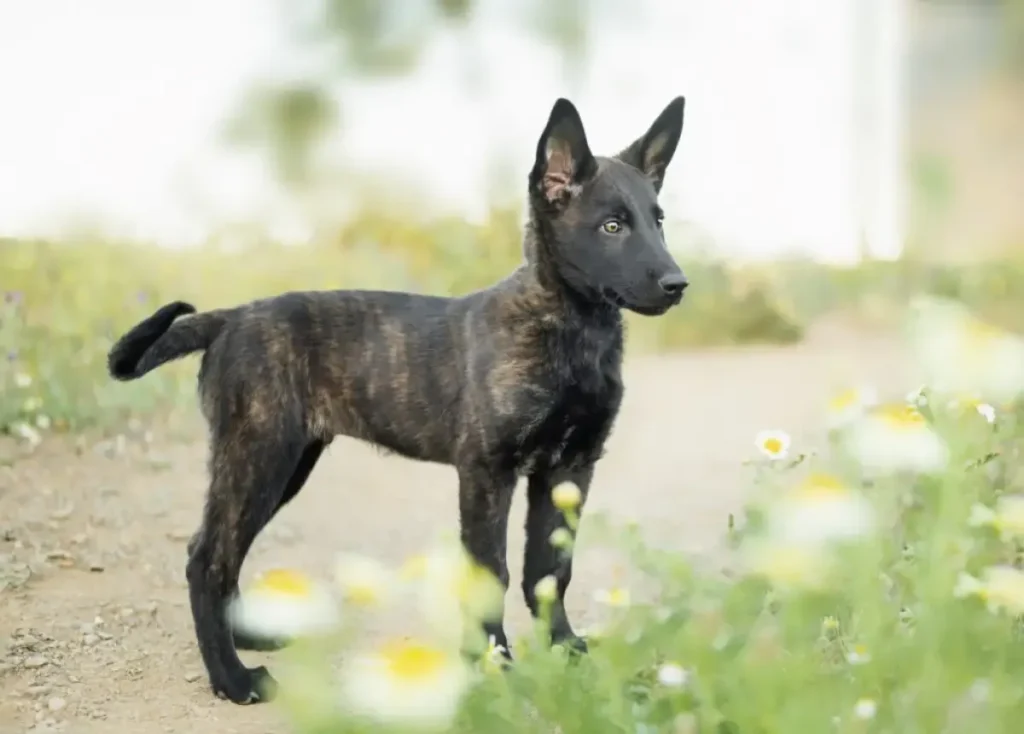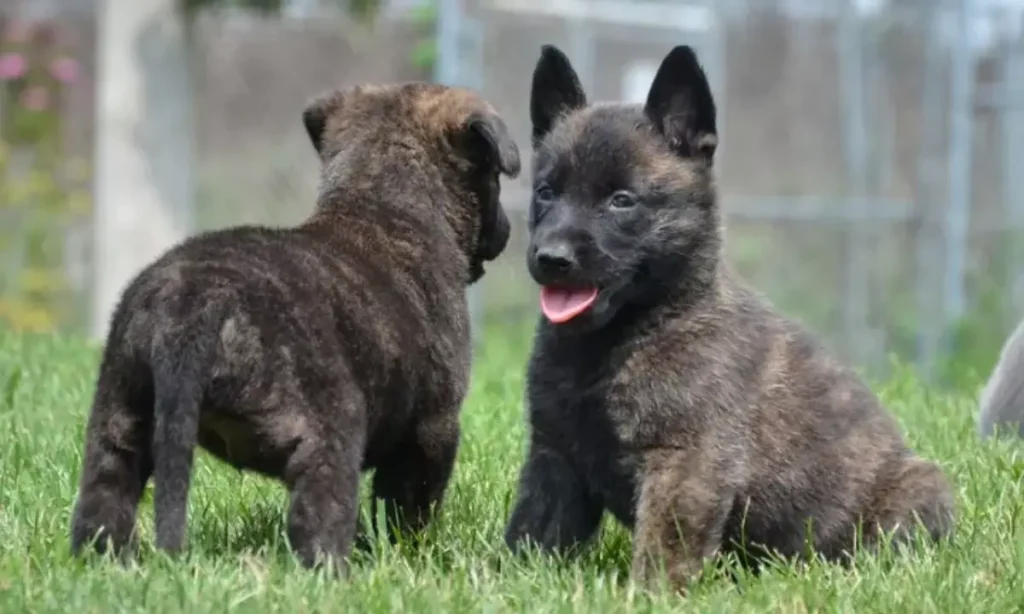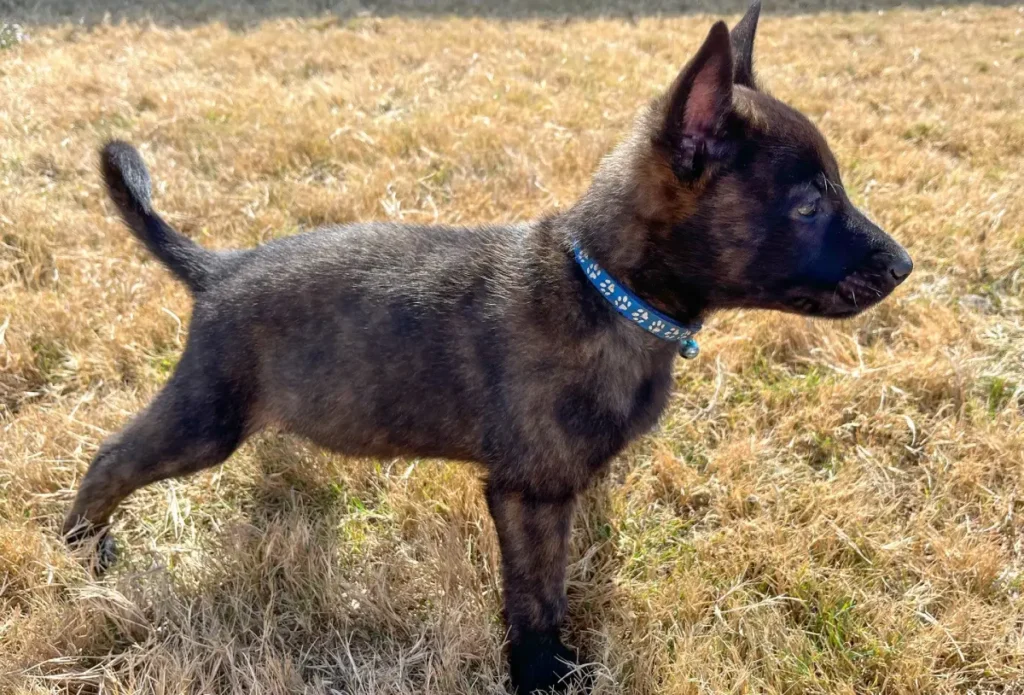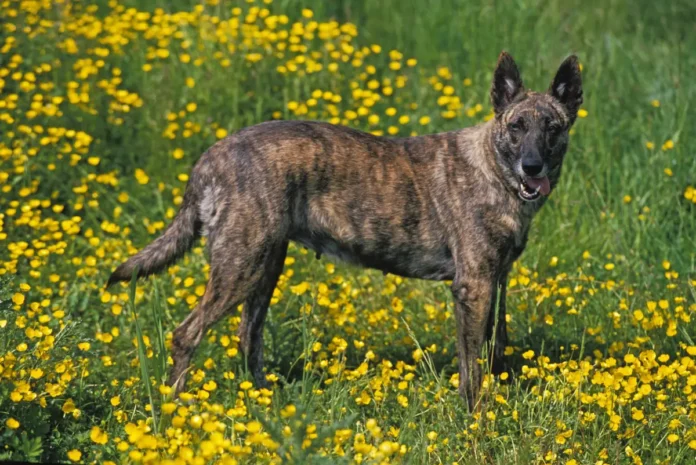Affectionate, obedient, intelligent, alert, reliable, and brave are some of the qualities that make the Dutch Shepherd puppy an excellent companion animal. It is always willing to carry out the tasks entrusted to it since it has the characteristics of a herding dog. It is very attached to its owners and has a hard time being alone. On the other hand, its great sensitivity can lead it to distrust strangers and become aggressive, which is why it is also an excellent guard dog.
Learn more about this popular breed if you plan to welcome them.
The story of Dutch shepherd puppy
Since the Middle Ages, these dogs have been used to help farmers control livestock, draw small trains and protect the house. The Dutch shepherd’s variety belongs to other western European herring dogs, such as German or Belgium. It is also believed that Dutch and Belgium share the usual ancestors and were part of the same breed before the Netherlands and Belgium.
The standard was determined in the late 1800s, and, however, all coating shadows were originally allowed, they were later limited to brown and black. In the mid -1900s, the Dutch shepherd was on the border of extinction. On the one hand, modernization in the fields; On the other hand, the arrival of World War II. Although the breed Dutch managed to get thanks to the efforts of the kennel clubs, today it is a breed that is difficult to find.
Presence of Dutch shepherd puppy
Medium size, medium construction, muscle and strong body structure. With great endurance, living nature and intelligent expression.
Dutch shepherd race behavior
Faithful and reliable, always awake and independent. A dog that is very dedicated to the owner and is very careful about people, it is not good to work with livestock and good. [/Fancy_box]
Cranial area
SKull: flat
Head: Good proportion of the body. It is long and without wrinkles; Dry, with flat cheeks and pronounced without chekbon.
Facial
Nose: Straight and parallel to the top line in the skull.
Truff: Black.
Settings: Swallowing the pan.
Lips: Firm and Dangit.
The jaw/teeth: strong, bite as scissors, white teeth.
Eyes: Dark color and medium size, almond shaped.
Neck: Small and dry, slowly into the body.
Body
The Dutch shepherd’s dog breed has a strong and muscle body.
Back: Firm and Sund
Lend: strong and small
Croup: slope and not too small
Breast: Curved and deep
Tail: Finally with a modest curve, not expand the past with dopping and hawk.
Ebbhus
Shoulder: strong and well recognized
Cell: strong and long, bones are very solid but not heavy
Stalsion: well connected
Coat
Thighs: well developed and muscles,
Knee: Stiff and resistant.
Ben: strong and resistant, because it is pushed with the hind legs.
Hawk: None.
Ben: Oval and closed together, slightly curved with toes.
Movement: independent, smooth and flexible without exaggeration in access or push.
3 types of coats
English: The collar, squat and tail should be wings and visible. These are close fit, wool undercot.
Small: smooth, closed appropriate, rough for touch, without curls, with a wool undercot.
Hard: Dense, stiff and uncontrolled with a wool undercotes throughout the body except the head. The coat should be tight.
Color: Bryandal, golden and silver.
Size and weight
Male: 57-62 cm, 29-30 kg
Woman: 55-60 cm, 26-29 kg
Nature and personality
These dogs are very humble, loyal and associated with the family, especially from the person who trained them and spend the most time with them. He has a friendly character and likes to be happy, so living with them is very easy. They like to play and spend time having fun, so they will meet very well with children of all ages. They are also very tolerant

Exercise and training
Think of another good preparation training for life with a Dutch shepherd puppy. Even as a puppy, whether your dog is sweet, chew your shoes, or looks unhappy when you eat, sets limits from the beginning, and it makes it clear that he will follow your orders. If your dog has already raised bad habits, it will be very difficult to break them when they are adults. Stay constant and teach him the most important rules for coexistence from an early age. Violence and extreme seriousness will not learn this sensitive dog anything; Opposite. The biggest successes will come with positive reinforcement. Give encouragement to cooperate and explain to him that it is worth obeying the command.
Tips on care and maintenance
Dogs with short hair need to brush once a week, but during the melting season in the spring and autumn, you should do so continuously. Long -haired dogs require two to three brushes a week, while dogs with wires do not often need to brush. However, they should go to the groom every 4. Or 5 months. The bathroom should only be given when needed, because excessive washing damage the natural fat layer that protects their skin.
Health problems and diet
Dutch shepherds are usually in very good health, with less phenomenon of genetic diseases than other herringas. However, some conditions should be known to be involved in hip and elbow dysplasia as well as involvement in hypothyroidism, especially long-haired variation.
Retina dysplasia is a condition that is more common in cats. It is a hereditary condition that affects the flow of blood in the eye and can cause glaucoma or blindness in the most serious cases.
Feed your Dutch shepherd puppy
When it comes to food, this breed does not require much. Of course, this does not mean that you can just give it something. After all, food affects the healthy development of the dog. But what food should you give? What is the best food for Dutch shepherd? In addition, they should always have fresh water available.
How to find ideal breeder
To find one it is very worth researching. Check the dog sports centers and forums, and ask someone who owns the Dutch shepherd puppy. Maybe someone can recommend you a breeder.
Of course, none of this does the first meeting with the breeder, which is a decisive moment. Not only should you like the breeder, but you should also be ready to look at her work. Don’t be afraid to ask him many questions. After all, you should know where your new friend came from and how he spent the first few weeks of life. Responsible breeders are happy when buyers think long and hard before buying the Dutch shepherd puppy. After all, they also want the children to end in good hands. Don’t be surprised if the breeder asks you a lot about the circumstances of your life and the experience with dogs. Consider it a good sign.
What to do before buying puppy

How to Find the Ideal Breeder
To find one, it is worth doing a lot of research. Check out dog sporting centers and forums, and ask someone who owns a Dutch Shepherd puppy. Perhaps someone can recommend a breeder to you.
Of course, none of this replaces the first meeting with the breeder, which is a decisive moment. Not only should you like the breeder, but he should also be willing to let you take a look at his work.
Responsible breeders are happy when buyers think long and hard before buying a Dutch Shepherd puppy. After all, they too want their babies to end up in good hands. So don’t be surprised if the breeder asks you a lot about your life circumstances and experience with dogs. Consider this a good sign.
What to do before buying a puppy

Preparations for the arrival of your puppy should be as perfect as choosing a breeder. Wait most to prepare everything. Buy important things, prepare your sleeping space and puppy your floor. With such a tornado you can make sure that a vase or two will break. Learn about courses for puppies and young people and see Dog Sports Center in your area. The breeder will probably be able to help you and will give you all kinds of suggestions to live with your Dutch shepherd puppy.
conclusion
Proper care and balanced diet are needed for the dog’s health. However, his joy does not depend on the contents of the brush or bowl. In order to satisfy a Dutch shepherd puppy, it must be activated physically and mentally. As a shepherd, it must work. This does not mean that it should be trained as a guide dog or police dog, even if it is excellent on it.
Dog sports or shared activities, such as cycling, jogging or playing in nature, are ideal for stimulating it. If you do not like to move and just want to walk around the block when the sun is shining, this dog is not for you. He is very active and wanted to match your preferences. On the other hand, if you want to do things with him and have time for training and education, he will be a loyal and tireless friend


